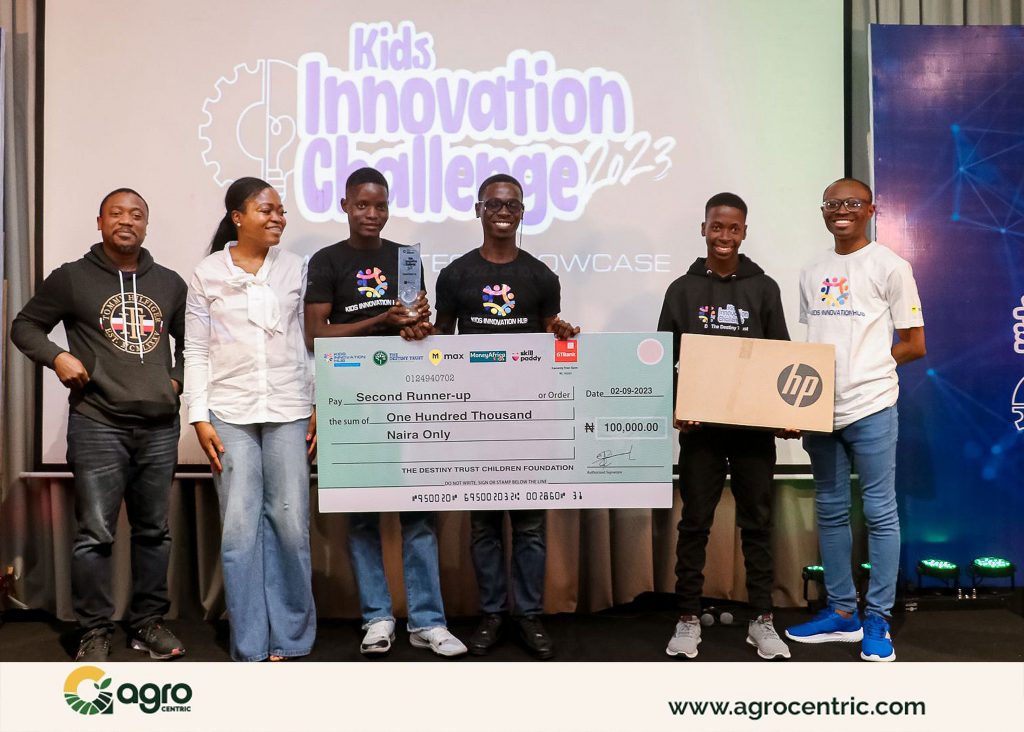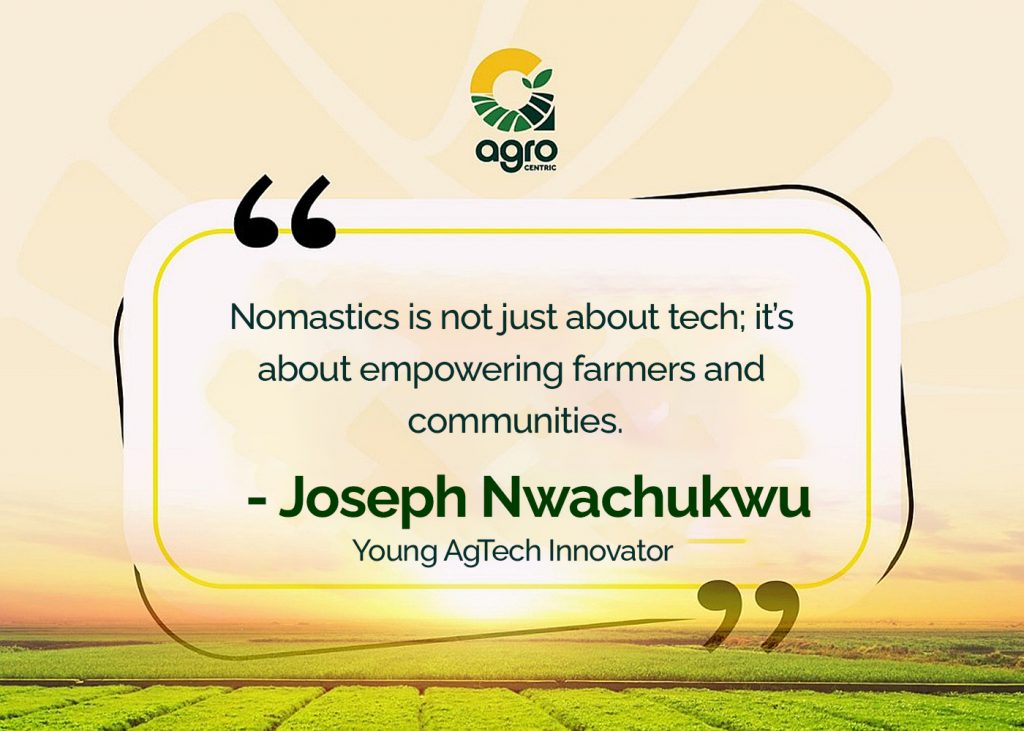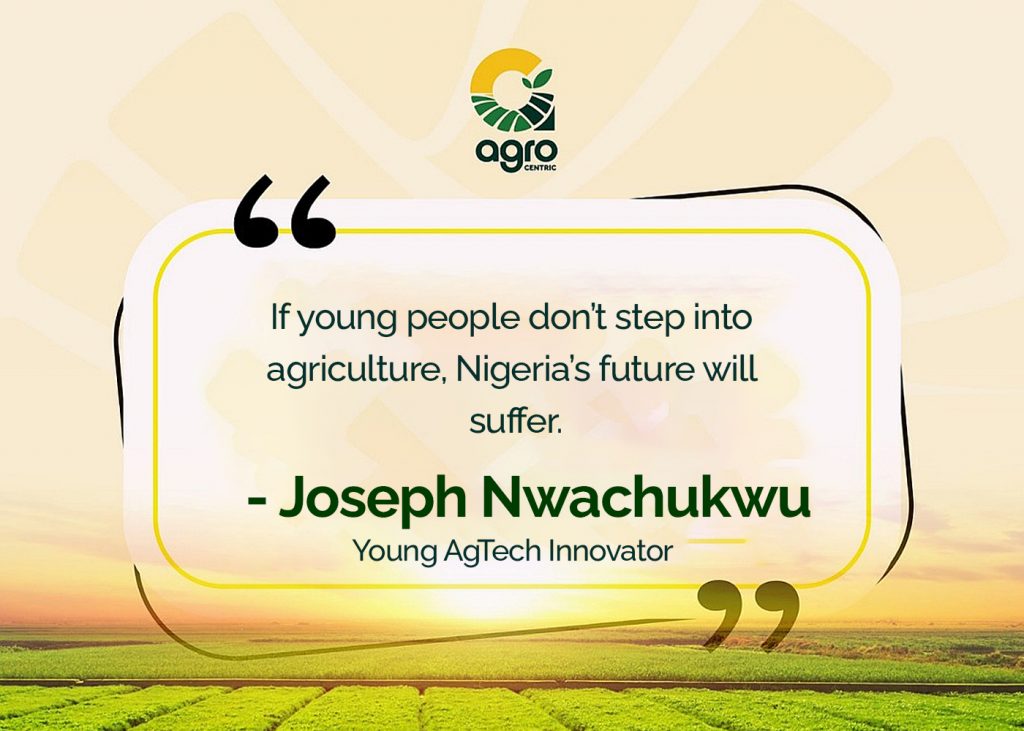
Every year, millions of tons of food are lost across Nigeria before reaching the market. For Joseph Nwachukwu, a student in Lagos, this problem is personal.
Instead of waiting for change, Joseph, at the age of 18, started experimenting with Nomastics, a prototype platform designed to connect farmers, buyers, and transporters in real time. With limited resources, but driven by research, teamwork, and curiosity, he is beginning to explore how youth can apply technology to agriculture’s toughest problems.
As part of AgroCentric’s #NextGenFarmers series, Joseph’s story is less about a finished product and more about a mindset: starting small, learning by doing, and daring to try.
Hello, Joseph. Can you start by introducing yourself?
My name is Joseph Nwachukwu. I’m an aspirant of a tertiary institution in Nigeria. I graduated from Baptist Boys High School. I was born and raised in Lagos, where I live with my six siblings. Beyond academics, I’m into product design, clothing branding, and technology. I also love plants, learning new things, and finding small ways to protect the environment.
What sparked your interest in agriculture? Did your family or community influence it?
Growing up, my parents reared hens, broilers, and other animals. I enjoyed caring for them. Later, I realised agriculture wasn’t just about animals but also about plants. I started a small farm in Lagos and would check on it every evening. It started with my love for seeing things grow and creating something from nothing.
A major turning point came when I joined the Kids Beach Garden Club, hosted and led by Miss Doyinsola Ogunye, an environmentalist in Lagos and Nigeria. From 2019 to 2024, I participated in gardening, tree planting, and other projects that deepened my love for agriculture, plants, and environmental protection.
What inspired your shift from automotive engineering to agricultural engineering??
When I initially wanted to study Automotive Engineering, I planned to apply my skills to agriculture, waste management, health, education, and urbanisation. Now that I am pursuing Agricultural Engineering, I see a broader opportunity.
I have started focusing on areas that interest me most, like Farm Power and Machinery Engineering, which connects to automotive systems, and Precision Farming, which involves developing new systems and technologies for farming. This allows me to merge my old dream with my new path to create impact.
You mentioned a team. What does that look like?
I’ve worked with different groups, sometimes leading and sometimes contributing. Right now, I have people ready to collaborate depending on the sector: agriculture, waste management, or health. I can call on them when needed.

What motivated you to join the Kids Innovation Challenge 2023?
Upon completing Junior Secondary School in 2022, I enrolled in the Kids Innovation Africa Hub, a program by Destiny Trust. There, young individuals are introduced to technology, including programming, design, and fundamental computing. My first year involved robotics, where my team and I developed a mini robot prototype for security and surveillance.
In 2023, I wanted to push myself further. I observed that Nigeria waste nearly half of its farm produce, particularly tomatoes, my brothers, Shakiru and Ibrahim, and I teamed up to solve this problem we identified.
And that solution became Nomastics. Tell me about it.
Yes. Nomastics, from Noma, meaning “farmer” in Hausa, is a digital marketplace connecting farmers, transporters, and buyers in real time. Farmers can list produce, while buyers track orders live. To overcome literacy barriers, we planned to partner with community leaders who could help farmers upload products. It’s about cutting waste, lowering costs, and empowering local communities.
Was this what you pitched at the Hackathon?
Yes. At the time, we only had a Figma prototype. We needed developers, but most insisted on payment, which we couldn’t afford. Still, the prototype was enough to share our vision.
What challenges did you face building Nomastics?
Visibility and resources. Living in a remote area with poor network access didn’t help. Also, finding people who shared the vision was tough. We’re just three core members, but this idea is bigger than us. Still, we’re working towards showing tangible progress so others can support.
And what makes Nomastics unique?
Unlike similar projects, we integrate community social workers who help farmers list produce and access payments. We’re also designing a voucher-based escrow system so farmers can prove sales and get paid securely. That record-keeping is crucial.
You eventually placed third in the challenge. How was that experience?
Tough but rewarding. We faced strong competitors with more experience. At one point, we almost gave up, but my habit of deep research saved us. I was ready for the judges’ tough questions on revenue, climate, and logistics. Coming third showed me young innovators like us could stand on big stages.

Where do you see yourself in 5 to 10 years?
I see myself where God wants me, solving real-world problems. By the time I graduate, I want to be the founder or co-founder of a startup with real traction. My focus is on agriculture, waste management, education, health, and security.
That’s ambitious. What advice would you give young people who want to venture into agriculture?
Start small. Don’t wait for perfect resources. Collaborate, be consistent, and use what you have. When I started, I didn’t own a system; I only had the internet on my phone and was curious about research. Agriculture offers endless opportunities if you’re persistent.
What challenges do young agricultural innovators face today?
Three main ones: funding, mentorship, and awareness. Many ideas die without funding. Mentorship helps young innovators avoid mistakes and build strong foundations. Awareness is low, and sometimes your posts get two likes for months, which is discouraging. We need more innovation hubs, youth-focused grants, and partnerships between government, private sector, and communities to give young people skills and visibility.

Apart from Nomastics, are you working on other projects?
Yes. I recently joined another team for the Innovation Africa Challenge, focusing on farmers’ welfare. We explored ways to support their health and wellbeing alongside logistics. Though we weren’t selected, I plan to merge that vision with Nomastics. Our main goal is to build a farmer community that can adopt our solutions and attract investors.
How many people are in your team now?
The original Nomastics team had three members, but with the new project, we have seven, including designers and developers.
Finally, what excites you about the future of agriculture in Nigeria?
The creativity of young people. I met a team that turned wasted produce into organic fertiliser. Others are finding bold solutions despite limited resources. Agriculture has endless opportunities. If more youths get involved, it will transform Nigeria and Africa, though it will take time.
Thank you, Joseph. This has been inspiring.